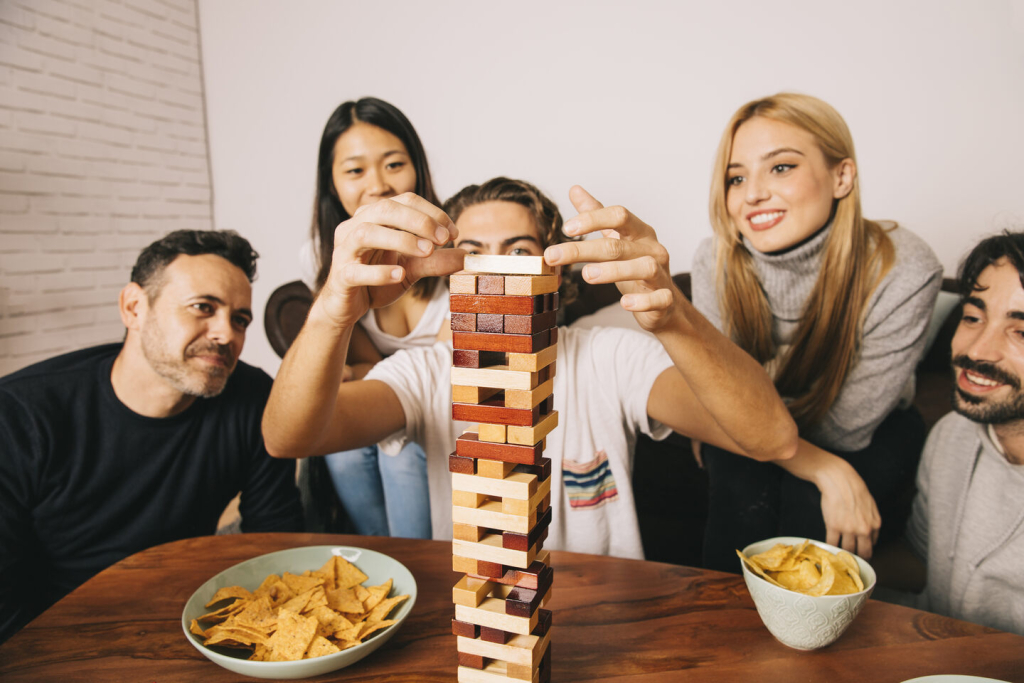
Ah, friendships. A close and enduring relationship between two or more individuals characterized by mutual affection, trust, support, and a sense of connection, it is one of the most important and fulfilling relationships in a person’s life.
Lifelong friendships play a crucial role in enhancing emotional well-being and fostering personal growth. As these relationships deepen, they incorporate essential elements that strengthen the bond between individuals resulting in life satisfaction.
Key Aspects of Friendships

At its core, friendship encompasses several key aspects that contribute to its depth and significance. Understanding these important elements can help us appreciate the value of true companionship and the ways it enriches our lives.
From mutual trust and respect to shared experiences and open communication, the essential aspects of close friendship form the foundation for meaningful and enduring relationships. Exploring these aspects reveals why friendships are not only enjoyable but also vital to our overall happiness and development.
Mutual affection
Friends genuinely care about each other and enjoy spending time with each other’s company. This affection is often expressed through kindness, support, and shared positive experiences.
Trust
Trust is fundamental in friendship. Real friends rely on each other to be honest, reliable, and supportive, creating a safe space for sharing personal thoughts and feelings.
Support
A close friend provide emotional, moral, and sometimes practical support. They are there during tough times to offer comfort and encouragement, and they celebrate each other’s successes and joys.
Respect
Respecting each other’s boundaries, opinions, and differences is crucial. Healthy friendships are based on mutual respect and understanding.
Shared experiences
Friends often share common interests, spend time together on activities, and experiences that help strengthen their bond. These shared moments create lasting memories and deepen the connection.
Communication
Open and honest communication is essential in friendship. It helps in resolving conflicts, expressing needs, and maintaining a strong connection.
Reciprocity.
Friendship involves give and take. Both friends contribute to the relationship, offering support, companionship, and care.
Empathy and understanding.
Friends empathize with each other’s feelings and experiences. This empathy fosters a deeper understanding and connection.
Who Can Be Your Friends?

Friendship knows no boundaries, covering a diverse array of individuals from various facets of our lives. Understanding who can be your real friends reveals the potential for meaningful connections beyond the obvious. Friends can emerge from your family, new friends from workplace, neighborhood, or shared interests and activities.
They might be classmates from school, colleagues from work, or even people you meet online or during travels. Each friendship, regardless of its origin, brings unique value and perspective, demonstrating that anyone you connect with on a personal level can become a cherished friend.
Exploring the varied sources of friendship highlights the limitless opportunities to build enriching and supportive relationships.
Family members
Comprising siblings, cousins, parents, and extended family, these relationships can evolve into friendships over time, especially as you grow older and find common interests and mutual respect.
Schoolmates or classmates
Including the people you meet in primary school, high school, college, or other educational settings, experiences shared in academic environments often lead to strong bonds and lasting friendships.
Coworkers
Professional experiences and daily interactions with your colleagues from your workplaces can lead to deep friendships. Work friends can actually turn into close friendships once nurtured.
Neighbors
Proximity and shared community spaces can foster friendships with people who live near you.
Social media connections
Common interests and frequent communication with people you meet and interact with online can develop into genuine friendships.
Activity and hobby groups
Bonding with your fellow sports teams, book groups, hiking groups, and gaming communities often lead to strong connections and friendships.
Mutual friends.
Social gatherings and introductions of friends of your existing friends can lead to new friendships.
Community and religious organizations
Shared values and community involvement among members of churches, temples, mosques, community centers, or volunteer groups often lead to meaningful friendships.
Travel companions
Travel experiences and adventures can forge lasting bonds among people you meet while traveling or exploring new places.
Chance encounters
Sometimes, spontaneous interactions with people you meet in unexpected places such as cafes, parks, events, or public transportation can lead to surprising and meaningful friendships.
Mentors and mentees
The mutual respect and guidance exchanged in such relationships can often evolve into friendships.
Pets
While not human, pets such as dogs, cats, and other companion animals can offer companionship, comfort, and unconditional love, often considered friends or family members.
Types of Friends

Friendship comes in many forms, each adding unique value and depth to our lives. The kinds of friendships we experience are influenced by the context in which they develop, the level of emotional connection, and the shared interests or activities involved.
From casual acquaintances and social media connections to close confidants and lifelong best friends, each type of friendship serves a different purpose and fulfills distinct needs.
Exploring the diverse kinds of friendships helps us appreciate the wide range of relationships that contribute to our social support network, personal growth, and overall happiness.
Acquaintances
Defined by limited interaction, polite conversation, and minimal personal disclosure, these are people you know on a superficial level, often through work, school, or social events.
Casual friends
These are friends you interact with more regularly than acquaintances, often sharing some common interests or activities, but the relationship does not go very deep.
Close friends
Friends with whom you share a deeper bond, characterized by frequent interaction, significant emotional support, shared experiences, and a higher degree of personal disclosure.
Best friends
These are your closest friends, ones with whom you share values and a long history with and often considered as part of your chosen family.
Childhood friends
Friends from your early years, often maintained over a deep sense of nostalgia, shared childhood experiences, and often a lasting bond despite changes over time.
Work friends
These are friends in the workplace who bond over shared work experiences and challenges, often providing professional and sometimes personal support.
Social media friends
Friends whose interactions with you remain through online communication, sharing interests, and maintaining connections over long distances.
Mentorships
Based on respect and learning, mutual benefit through guidance and knowledge sharing, these are relationships where one person guides or advises another, often in a professional or personal development context.
Situational friends
Friendships that develop in specific contexts, such as travel buddies, gym friends, or parents of your children’s friends.
Long-distance friends
Friends who live far apart but maintain their relationship through communication.
How Can I Make Friends?

Making friends can be a fulfilling and enriching process. Here are some practical steps and tips to help you form new friendships.
Be open and approachable.
Smile and make eye contact. These simple gestures can make you seem more approachable and friendly.
Positive body language. Keep your body language open and inviting and avoid crossing your arms or looking closed off.
Join groups or activities.
Clubs and organizations. Join clubs, sports teams, or hobby groups that interest you.
Volunteer work. Volunteering for causes you care about can connect you with like-minded individuals.
Classes and workshops. Enroll in classes like cooking, dance, and art to meet people with similar interests.
Attend social events.
Parties and gathering. Attend social events, even if you feel shy at first.
Community events. Participate in local festivals, community fairs, and town events.
Meetups. Use platforms like Meetup.com to find local groups and events tailored to your interests.
Leverage existing networks.
Mutual friends. Ask friends to introduce you to their friends.
Work connections. Engage with colleagues outside of work-related activities.
Be a good listener.
Show interest. Ask questions and show genuine interest in what others have to say.
Active listening. Listen attentively and respond thoughtfully to keep the conversation flowing.
Initiate conversations.
Compliments and small talk. Start with a compliment or a comment about your surroundings to break the ice.
Shared interests. Discuss common interests to find common ground.
Be yourself.
Authenticity. Be genuine and authentic in your interactions.
Share about yourself. Open up about your interests and experiences to create deeper connections.
Follow up.
Stay in touch. Keep in contact after your initial meeting. Send a text, email, or call to keep the relationship going.
Plan activities. Invite them to join you for coffee, lunch, or other activities you both enjoy.
Use social media wisely.
Online groups. Join online communities related to your interests.
Social media engagement. Engage with people on social media platforms like Facebook, Instagram, and LinkedIn.
Be patient and persistent.
Building trust. Building meaningful friendships takes time. Be patient and persistent.
Overcoming rejection. Not every attempt will result in a friendship. Do not be discouraged by occasional setbacks.
Additional tips for specific situations.
Introverts.
Join smaller groups where you can have one-on-one conversations rather than large, overwhelming gatherings.
New environments
When moving to a new place, seek out local clubs, community centers, and online forums for newcomers.
Cultural differences
Be respectful and curious about cultural differences. This can enrich your friendships and broaden your perspective.
By being proactive, open, and genuine, you can create opportunities to meet new people and develop lasting friendships.
How Can I Be a Better Friend?

Being a better friend involves developing qualities and behaviors that foster trust, support, and mutual respect. Here are some practical tips to help you become a better friend.
Listen and communicate openly
Active listening. Pay attention, show interest, and respond appropriately. Avoid interrupting or thinking about your response while the other person is talking.
Empathy. Try to understand their feelings and perspectives. Validate their emotions even if you don’t fully agree with their viewpoint.
Honesty. Be honest but kind. Share your thoughts and feelings openly while being considerate of their feelings.
Conflict resolution. Address conflicts calmly and constructively. Focus on resolving the issue rather than winning the argument.
Show appreciation and gratitude.
Express thanks. Regularly express your appreciation for your friend’s presence and the things they do for you.
Small gestures. Small acts of kindness, like a thoughtful message or a little gift, can show that you care.
Be reliant and offer support.
Be there in tough times. Offer a shoulder to cry on or help out when they are going through difficult times.
Celebrate successes. Share in their joy and celebrate their achievements with genuine happiness.
Keep promises. Do what you say you will do. If you promise something, make sure you follow through.
Confidentiality. Respect their privacy by keeping shared information confidential.
Show respect and understanding.
Respect boundaries. Understand and respect your friend’s boundaries and personal space.
Cultural sensitivity. Be respectful of their cultural background, beliefs, and values.
Understanding. Be empathetic and try to understand their feelings and situations.
Compassionate actions. Show compassion through your actions, whether it’s offering help or just being there to listen.
Spend quality time together.
Shared activities. Engage in activities you both enjoy. Quality time strengthens the bond between friends.
Regular contact. Stay in touch regularly, even if it’s just a quick message to check in.
Be supportive and encouraging.
Encouragement. Encourage their goals and dreams. Be their cheerleader.
Constructive feedback. Provide honest feedback in a constructive and supportive manner.
Be forgiving.
Let go of grudges. Be willing to forgive mistakes and move past disagreements.
Apologize when needed. If you make a mistake, apologize sincerely and make amends.
Be yourself.
Authenticity. Be genuine and authentic in your interactions. True friends will appreciate you for who you are.
Encourage mutual growth.
Personal development. Support each other’s personal growth and development.
Shared goals. Work on common goals together, whether they’re fitness goals, learning new skills, or any other shared interests.
In conclusion, the diverse types of friendships we cultivate profoundly shape our lifestyles, influencing our emotional well-being, personal growth, and social experiences. From the casual acquaintance to the lifelong confidant, each friendship offers unique benefits and fulfills specific roles in our lives.
These relationships provide support, companionship, and opportunities for shared experiences, enriching our daily existence and helping us navigate life’s challenges.
By appreciating and nurturing the different types of friendships, we can build a robust social network that enhances our happiness, resilience, and overall quality of life.
Understanding the various dimensions of friendship allows us to fully embrace the value they bring, making our lives more meaningful and connected.

Celebrate Life’s Milestones in Camella!
Make unforgettable memories in a Camella home.
Our communities are designed to elevate your living experience.


